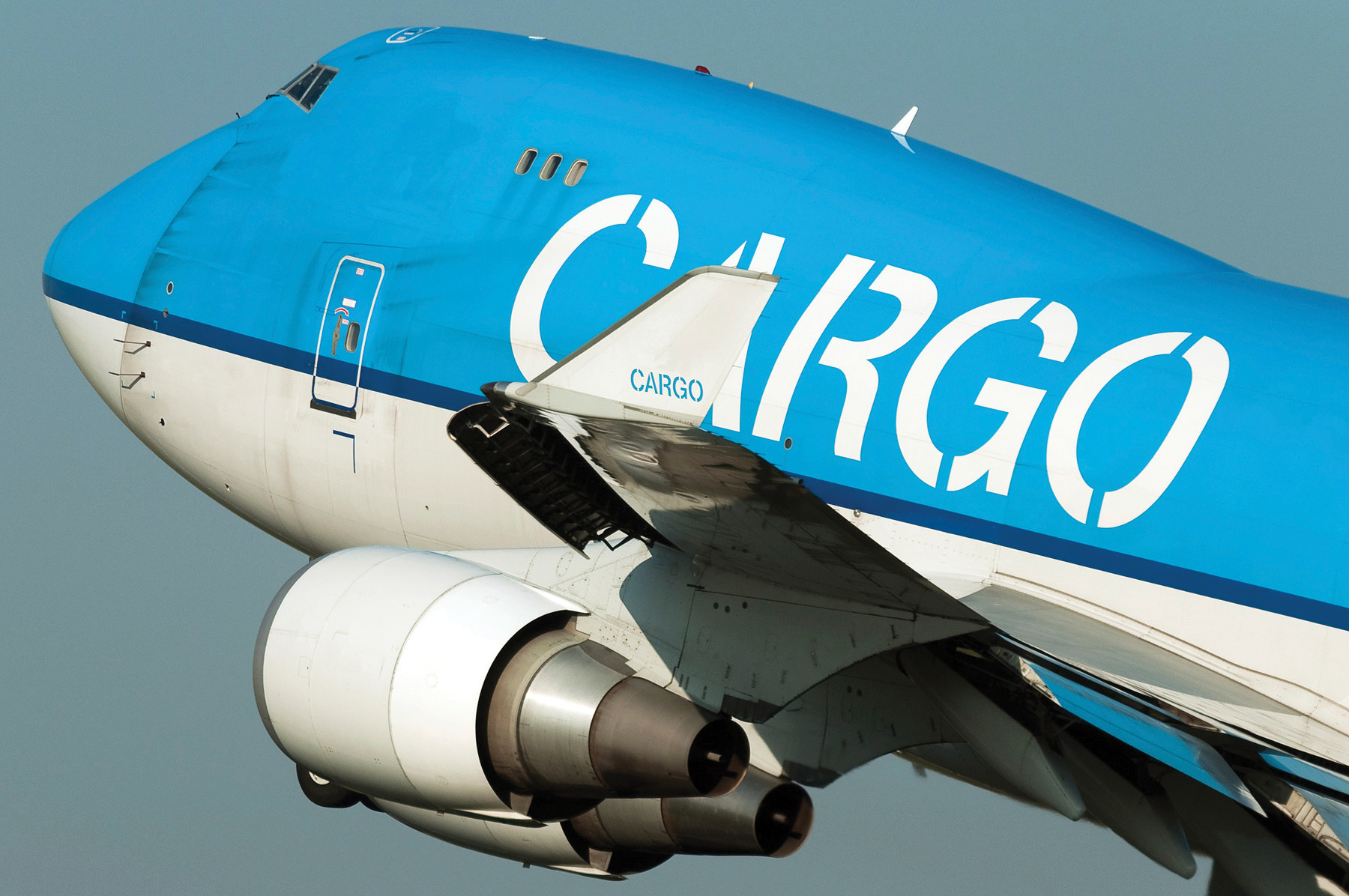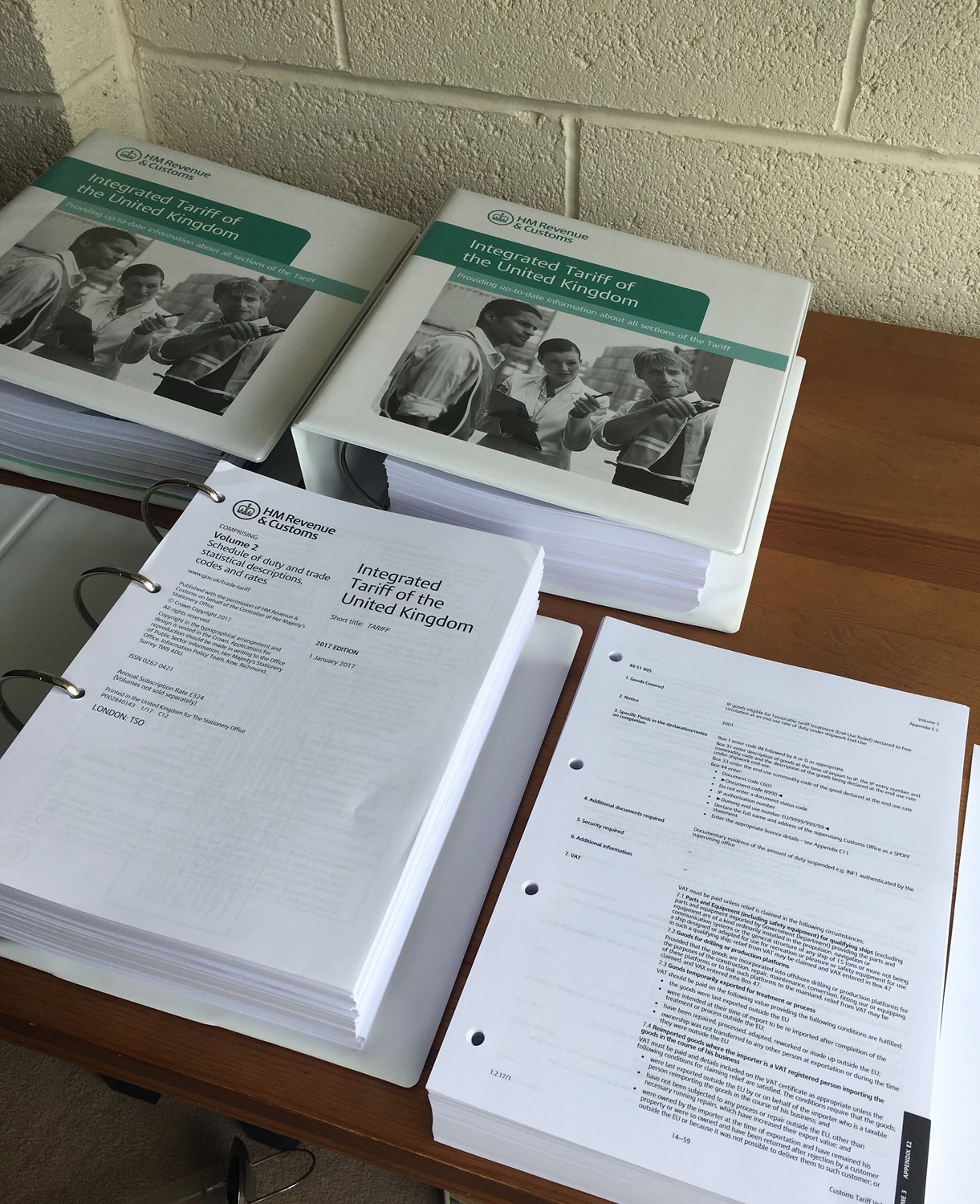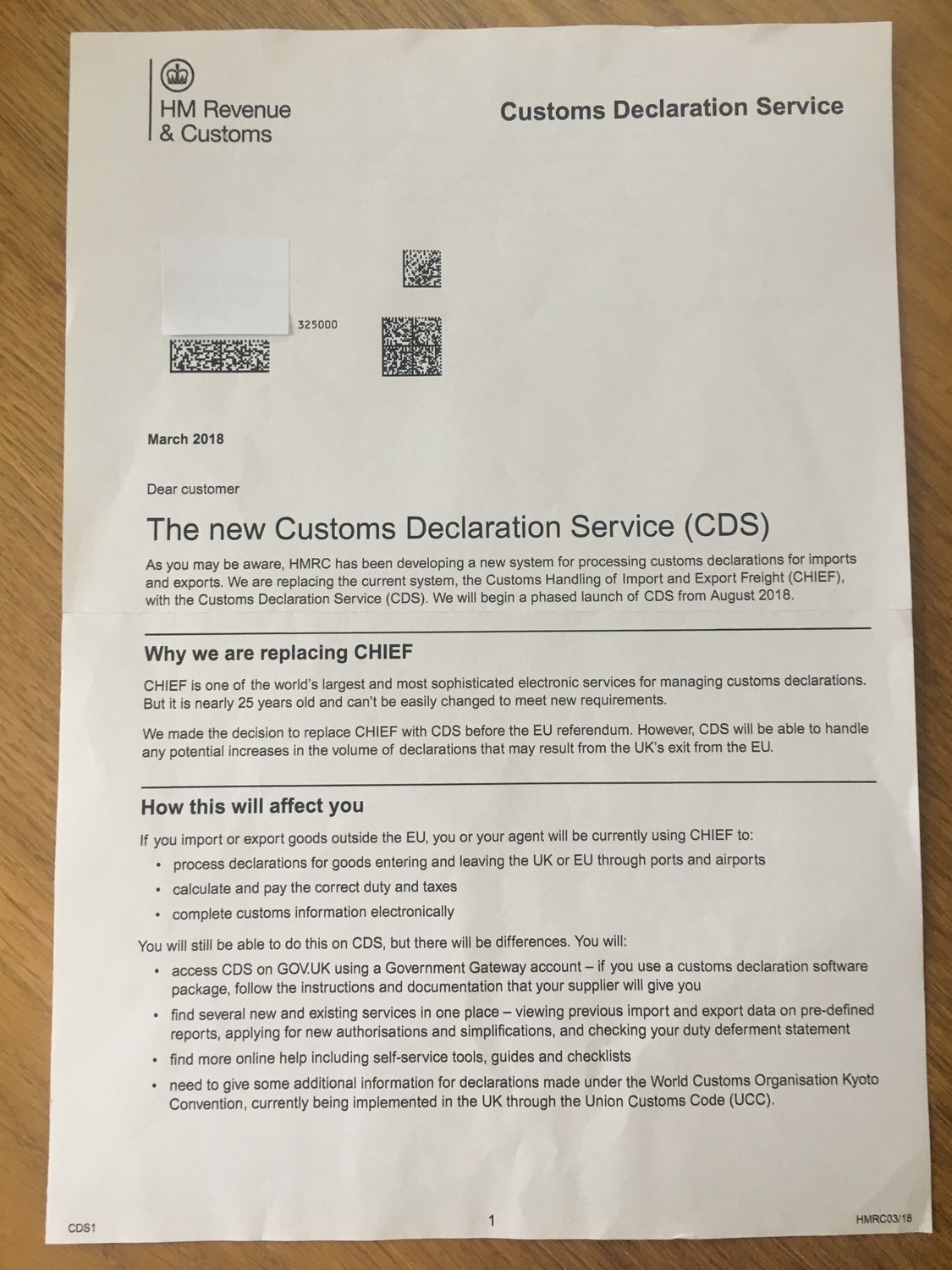A dramatic headline, and for good reason. For those of you who import and export, you quite understandably just want to ship your exports and take delivery of your imports in a timely and cost-effective way, and for this you will use the services of a freight forwarder (or logistics service provider as we like to say these days). The LSP does quite a lot behind the scenes to ensure your shipments move as smoothly through the various channels, be they physical (deliveries and collections, ports and airports, warehouses) or electronic (declarations made to HMRC or bookings made with shipping lines and airlines) and it all works, because LSPs live in that world and become very adept at making it happen, and hopefully keeping you as a customer, happy.
So that's all good. So when it comes to Customs, there's a lot of engagement between LSPs and Customs on your behalf, most of it unseen and very often not fully understood. Let's take an import from the USA or China for example. The goods need to be Customs cleared at the port/airport of arrival and a declaration made to the Customs IT system (which is called CHIEF - Customs Handling of Import and Export Freight) via a software package they will use. This is what's known as a Customs entry and once processed, a calculation is made to arrive at the appropriate amount of import duty, VAT and any other duties which the importer must bear. The entry could be a simple one, where goods are destined for UK/EU clients (so called Home Use) with just one commodity code (say a hydraulic pump) but it can also go the other way, with up to 30-40 tariff headings relating to various products and different procedure codes (some goods Home Use, some goods for re-export (Inward Processing) so then it gets more complicated - but still very do-able by a seasoned Customs broker at your freight forwarder.
Why all that detail you may say? I am trying to create some context here because CHIEF is being replaced by a new IT platform, CDS (Customs Declaration Service) from August-18 (yes next month) on a phased launch. I had heard a little about CDS and understandably wanted to know more, and so I went to a seminar in Warrington in late June , along with around 100 others from the Northern logistics community to learn about CDS and how it will impact everyone involved, and more importantly, what we need to do to prepare. I should add here that Customs call freight forwarders or logistics service providers CSPs (Community Service Providers) just to confuse matters more!
The seminar was very professional but within 30 minutes, people who work in the front line, and know the current systems extremely well were clearly concerned about the breadth and depth of the proposed changes, and when a HMRC presenter said "with CDS, these changes will be quite profound" this confirmed people's concerns.
The upshot here is that this phased launch starts Aug-18 and is planned to be fully implemented by Jan-19 so the timing isn't ideal, as if we make a so called "hard BREXIT" and leave the EU without a deal in March 2019, we will have to cope with two major changes around the same time, the so called perfect storm in my title.
CDS and the new tariff will need to cope with that. Even if you disregard BREXIT, the problems many of us saw at the seminar was that despite a huge amount of work going into the project within HMRC:-
- The new system seems to be unnecessarily complicated from a declaration standpoint - for example, a Customs entry will go from 54 completion fields to around 80 (and up to 130 in some cases).
- It will require considerable training to take place so that the whole community is aligned and ready, and it seems so far that there has been only limited engagement with a handful of "test" freight forwarders and almost none with UK importers and exporters apart from a vague letter in March which is attached below.
- The Customs tariff (library photo of ours shown above), which across its 3 volumes is the bible for UK import and export Customs procedures, classifications and duty rates, and has been well understood for many years will also be replaced and we still await a draft version which will be another major change to digest and incorporate into the new procedures
- Software providers are still working with HMRC to create packages which will allow forwarders to make declarations in the new environment, but I imagine the lack of engagement with stakeholders and ongoing EU negotiations will cloud the issue and cause more delays and confusion
- There are 145,000 companies who purely trade with the EU and in the event of a "no deal" scenario, these companies would suddenly have to become conversant with formal Customs entries - and CDS. So far, Customs haven't engaged with this group.
- Compliance - we carry out Customs compliance work for many customers and for this, we need supporting shipment and Customs entry documents (C88/E2 etc) to confirm accuracy of declarations. When we asked whether CDS would be able to continue generating these Customs documents, no one could confirm if it could, a major concern
- Many questions were put to the panel with several from myself however most of these were take aways "we'll have to look into this", another concern for the audience
To summarize, I saw a report from the National Audit office the other day, which was rather worrying in itself, as it said that the CDS project is behind schedule and HMRC are unlikely to deliver the project on time.
I quote from their report in late June "Significant challenges remain and there is a risk that CDS will be unable to fully replace the existing CHIEF (Customs Handling of Import and Export Freight) system by January 2019".
Furthermore, they will be developing and testing the system at the same time as it migrates users (alarm bells now ringing...). They also won't know if CDS actually works in a live environment until it has implemented all the functionality in December 2018, more cause for concern.
I also attach a letter one of our customers received from HMRC which warned them about CDS but in truth, it doesn't tell you much at all!
So my advice to you is to start talking to your freight forwarder or Customs broker so they can tell you what stage they're at, what preparations they understand that you will need to make (such as updating commodity codes for your products) and hopefully we won't have to deal with logistics delays and disruption in early 2019, although I have to say that today, along with many other professionals at the seminar, I remain extremely concerned that we will.



